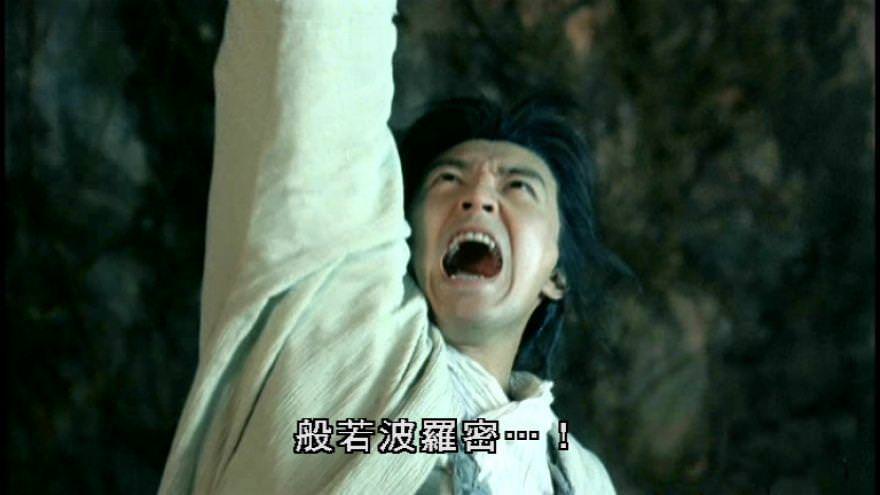Five-gun salute given to Yap Ah Loy (1885)
An account detailing the discovery of Captain Yap's death by his wife can be found in The Straits Times (20 April 1885, p. 3):
. . . at midnight between the 14th and 15th March, his wife visited him at his bedside and gave him some food and then retired to bed for the night. Between 5 and 6 o'clock, not seeing the Capitan as usual going about, she went to waken him, and found him dead, cut off almost in the prime of life at the age of 48 . . .
The report was consistent with the calendrical data written on the photo housed in the Sin Sze Si Ya Temple. We were told by the same newspaper clip that Captain Yap was honored with two series of five-gun salute (10 o'clock, fired from the Joss House, and 7 o'clock the next morning when the body was placed in the coffin.
A five-gun salute is typically reserved for a vice consul working in a diplomatic office, while a consul is usually honored with a seven-gun salute. In 1885, the 21-gun salute is reserved for King George V, while the 19-gun salute is for William E. Gladstone, the prime minister of the UK.
| Native chief | Salute |
|---|---|
| Sultan of Selangor | 17 |
| Sultan of Muar | 17 |
| Maharaja of Johor | 17 |
| Sultan of Terengganu | 15 |
| Sultan of Kelantan | 15 |
| Chief of Perak | 13 |
| Raja of Kedah | 13 |
| Bendahara of Pahang | 9 |
| Chief of Sungei Ujong | 9 |
| Chief of Rembau | 9 |
| Chief of Johol | 9 |
| Chief of Sri Menanti | 9 |
- We are not certain which wife tried to wake Yap Ah Loy up in the early morning of April 15, possibly Kok Kang Keow 郭庚嬌, but other wives are just as likely.
- The calendrical data associated with the birth and death of the Captain China can be found on the sides on the photo: 生於前清道光十七年丁酉歲二月初八寅時・一八三七年三月十四 (born on the 17th Year of Daoguang, 8th Day of the 2nd Month of the Year of Dingyou, Hour of Tiger, 14 March 1837).

葉德來先生遺像. This photograph was handpicked by tin mining magnate Zhang Jingwen 張敬文 (d. 4 April 1962), the author of Jílóngpō Xiānsìshīyé-gōng chuàngmiào shǐlüè 吉隆坡仙四師爺宮創廟史略 (A short account of the founding of the Joss House in Kuala Lumpur, published in 1959), likely many years after Captain Yap had gone over to the majority, since Zhang was a 12-year-old boy in 1885 and we were told that he first came to Kuala Lumpur in 1895. On the first day of the Chinese New Year in 1883 (光绪九年正月初一, 8 February 1883), Swettenham paid a visit to Yap Ah Loy and felt compelled to record in his diary that the Captain China appeared visibly unwell. He speculated that Yap might be suffering from dyspepsia or some other stomach-related ailment.
終於光緒十一年乙酉歲三月初一卯時・一八八五年四月十五卯時 (died on the 11th Year of Guangxu, 1st Day of the 3rd Month of the Year of Yiyou - 15 April 1885 - Hour of the Rabbit (5 am < 卯時 < 7 am). Captain Yap's birth/death can be compactly expressed in their sexagesimal forms: 丁酉癸卯丙辰庚寅 and 乙酉庚辰庚子己卯.
- In 1957/0004121W, A. M. Skinner, the acting Colonial Secretary, penned the following reply to Rodger: . . . His Excellency (Cecil Clementi Smith was acting on behalf of Weld, March 1884 to November 1885) fully shares your opinion that the Government of the State has suffered a severe loss by the death of the Capitan China whose enteprise and integrity has so frequently been recognised by the Governors of this colony and His Excellency will be obliged by your conveying his sincere condolences to the family of the late Capitan, intimating at the same time, that his valuable public services will long remain on record . . .
- We were told earlier that Robinson's departure in 1879 was honored with a military salute of 17 guns. In the native states, salute of 17 guns was reserved only for three kings in the peninsula: Sultan Abd al-Samad of Selangor, Sultan Ali of Muar, and Maharaja Abu Bakar of Johor. The Sultan of Muar in 1869 was the son of Sultan Hussain, the reluctant king installed by Raffles in Singapore in 1819. After the death of Sultan Ali in 1877, his son was not recognized as the crown. Muar was eventually absorbed into modern Johor in 1879 when Tengku Alam's troop was defeated by Maharaja Abu Bakar in Jementah.
- Ali ruled Perak in 1869, but upon his death in 1871, Raja Abdullah was bypassed in favor of Raja Ismail, triggering a period of instability. Order was briefly restored when Clarke enforced the Treaty of Pangkor, upgrading Abdullah to ruler and downgrading Ismail to a king-in-waiting. However, both were later implicated in the 1875 murder of Birch and subsequently exiled—Ismail to Johor and Abdullah to the Seychelles. In the aftermath, the British delayed the installation of a new ruler, leaving the throne vacant until 1886. Meanwhile, in 1869, Kedah was under the rule of Ahmad Taj al-Din, the elder brother of Tunku Kudin. Notably, Ali and Ahmad Taj al-Din were not addressed as Sultan in this list.
- In 1869, Wan Ahmad was known as Bendahara to the Straits Government. As the first king from the House of Bendahara, he assumed the title of Sultan only 13 years later, on 6 August 1882 (Linehan 1936, p. 104. His seal, however, shows that he assumed the title as early as 1297 AH or 1879). His status in 1869 was similar to that of the chiefs in Sungei Ujong (Dato' Klana Putra Sendeng), Rembau (Dato' Sedia Raja Akhir), Johol (Dato' Saeto Rubah) and Sri Menanti (Raja Imam). It is not known why Jelebu was explicitly named in the list since it is one of the big four in modern Negeri Sembilan. Actually, the Indic honorific Sri Maharaja is found in the full title of both the Temenggong and the Bendahara in the Johor kingdom (e.g. al-Wathiq billāh Dato' Temenggong Abu Bakar Sri Maharaja Raja Johor ibn al-Marhum Dato' Temenggong Sri Maharaja Sanat 1278; al-Wathiq billāh Dato' Bendahara Sri Maharaja bin Bendahara Sri Maharaja Pahang Sanat 1277).





Comments